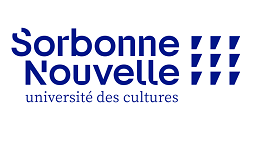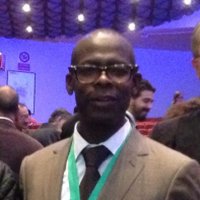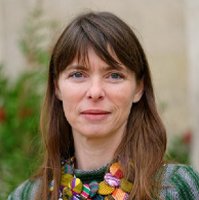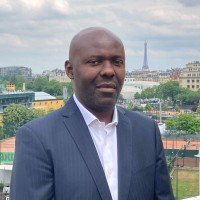Challenges and Perspectives of African Heritage
- Duration: 8 weeks
- Effort: 24 hours
- Pace: ~3 hours/week
- Languages: English and french
What you will learn
At the end of this course, you will be able to:
The MOOC aims to provide learners with notions on the following points:
- An overview of the richness and diversity of cultural and natural heritage, both tangible and intangible in Africa.
- The challenges of its recognition, constitution and definition in the post-colonial context.
- The identification of the main actors in the field of heritage.
- The place of African heritage in the context of globalization.
- Knowledge of the means of conservation and development of African heritage, in relation to local communities.
- Identification, knowledge and analysis of both challenges and good practices through a variety of case studies based on African examples of heritage management.
Description
This course is the result of an international collaboration between universities wishing to offer online training on the challenges and perspectives of African natural and cultural heritage: University Paris 1 Panthéon-Sorbonne (France), University Sorbonne Nouvelle (France), University Gaston Berger (Senegal).
Africa, the cradle of humankind, possesses numerous and complex properties testifying its history, natural riches, civilizations, folklore and lifestyles. However, it faces particularly complex economic, societal and political conditions. The current, most impending challenges it faces are both anthropic (insufficient conservation and management (either due to missing funds or human capacities), armed conflict, terrorism, poaching, uncontrolled urbanization…) and natural. But not all of Africa’s heritage is endangered or in a state disrepair: many tangible or intangible, natural or cultural heritage properties are conserved and valorized in an exemplary way. Good practices and projects show that objective difficulties can be overcome.
Format
The course consists of eight chapters, released one per week. During each chapter, learners will have access to ad-hoc documents and videos produced by members of the three leading universities (University Paris 1 Panthéon-Sorbonne, University Sorbonne-Nouvelle, University Gaston Berger).
Participants will also have the opportunity to assess their understanding and learning progress through quizzes, as well as through various activities, discussions, and peer-to-peer evaluated activities.
During the eight weeks of thee course, the pedagogical team is available to answer questions and give advice to the participants. Afterwards, you can still register to the course, watch videos, read the theoretical texts, answer quizzes, track your progress and discuss the challenges of African heritage with an international community of learners, but without the support from the pedagogical team.
The course will run for three sessions in 2022 (January-March; October-December) and 2023 (October-December).
Prerequisites
The MOOC is open to anyone wishing to learn more about the richness and actors of African heritage, as well as about the challenges and opportunities it presents for the development of territories and local communities. It has, however, a special focus on professional figures involved in heritage management in Africa, such as academics (teachers, researchers, students), heritage site, museum and ICH property managers, state agencies and local decision-makers.
Assessment and certification
The assessment process is based on weekly quizzes, where participants can test their knowledge. Learners successfully completing the course (with a score of 80% or higher) will then receive a free course completion badge (Open Badge).
Badges will be issued at the end of the session.
Course plan
Chapter 2 : Challenges and Strategies for the Development of African Heritage
Chapter 3 : Tourism Economy and Heritage Marketing
Chapter 4 : Cultural and Natural World Heritage System : The 1972 UNESCO Convention in the African Context
Chapter 5 : African Intangible Cultural Heritage (ICH) in the Globalization Process
Chapter 6 : Museum Management in Africa. Challenges and Perspectives
Chapter 7 : Spoliations, restitution and return of African cultural properties
Chapter 8 : ICT for African Heritage
Course team
Maria Gravari-Barbas
Categories
Organizations
Partners
This course is the result of an international collaboration between universities wishing to offer online training on the challenges and perspectives of African natural and cultural heritage: University Paris 1 Panthéon-Sorbonne (France), University Sorbonne Nouvelle (France), University Gaston Berger (Senegal).

Université Gaston Berger (Saint-Louis, Sénégal)

License
License for the course content

Attribution-NonCommercial-ShareAlike
You are free to:
- Share — copy and redistribute the material in any medium or format
- Adapt — remix, transform, and build upon the material
Under the following terms:
- Attribution — You must give appropriate credit, provide a link to the license, and indicate if changes were made. You may do so in any reasonable manner, but not in any way that suggests the licensor endorses you or your use.
- NonCommercial — You may not use the material for commercial purposes.
- ShareAlike — If you remix, transform, or build upon the material, you must distribute your contributions under the same license as the original.
The course is offered under a CC BY-NC-SA 4.0 license (https://creativecommons.org/licenses/by-nc-sa/4.0/).
You must give appropriate credit, provide a link to the license, and indicate if changes were made. You may do so in any reasonable manner, but not in any way that suggests the licensor endorses you or your use.
You may not use the material for commercial purposes.
If you remix, transform, or build upon the material, you must distribute your contributions under the same license as the original.
You may not apply legal terms or technological measures that legally restrict others from doing anything the license permits.
License for the content created by course participants

Attribution-NonCommercial-ShareAlike
You are free to:
- Share — copy and redistribute the material in any medium or format
- Adapt — remix, transform, and build upon the material
Under the following terms:
- Attribution — You must give appropriate credit, provide a link to the license, and indicate if changes were made. You may do so in any reasonable manner, but not in any way that suggests the licensor endorses you or your use.
- NonCommercial — You may not use the material for commercial purposes.
- ShareAlike — If you remix, transform, or build upon the material, you must distribute your contributions under the same license as the original.
By default, the same licence applies to the content created by the course takers on the FUN MOOC platform.











